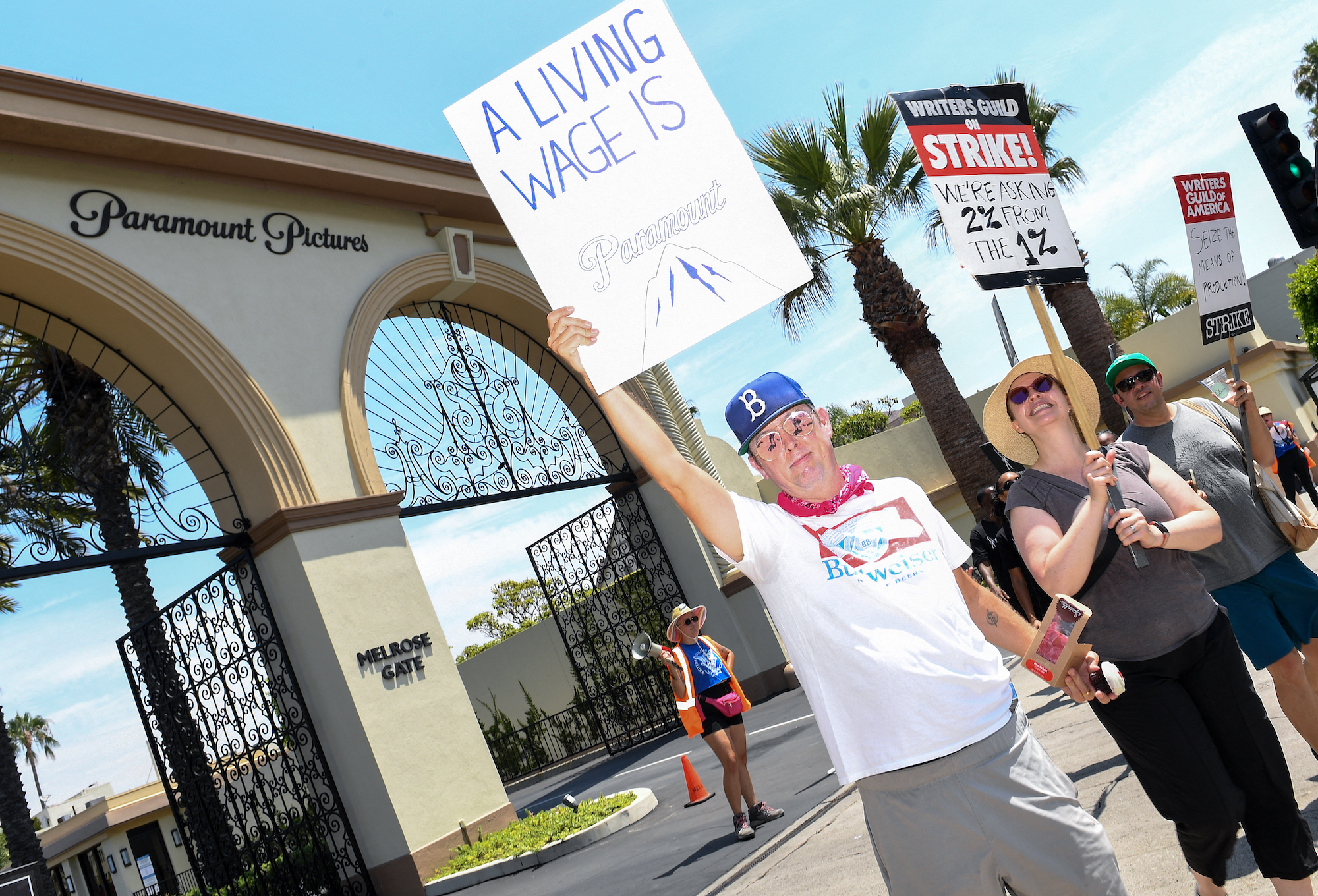Like many working in Hollywood, Jett Garrison’s schedule has constantly fluctuated. He was already on a year-and-a-half hiatus from working in the writer’s room for the TV show “Gen V” — and receiving income — to be able to direct the upcoming show “Clean Slate” when the industry paused due to the writers’ strike. Now, he and his colleagues are playing what he calls “economic jenga.”
In July, studio executives and the Alliance of Motion Picture and Television Producers said that by October strike participants would run out of savings and be forced back to work. That could be.
But in the meantime, as workers affected by the writers’ and actors’ strikes come to terms with the work stoppage, they are reconsidering their housing options, in large measure to ensure they can stay on the picket lines as long as possible.
“It’s just made us dig in harder and try to be resourceful,” said Garrison, who rents in L.A.’s Valley Village neighborhood. “Do we need to go take a part-time job? Do I take a roommate? Do I give up my place and maybe go and rent a room from somebody? People are looking at those options, instead of going to the guild or the negotiators.”
No hard data, such as numbers on mortgage payment delinquencies, exist yet to suggest home sales in Los Angeles have been pinched by the strikes, but TV and movie workers say they are considering all kinds of options to be able to survive.
Zev Fried, a senior financial planner at JSF Financial, said that one of his clients, who is a composer, is budgeting after taking on a larger mortgage during the pandemic while another is considering selling their second home. However, the larger impact is on people who work behind the scenes, whether that is on production lots or at restaurants and other businesses nearby.
“They were renting or they owned, and they’re moving out and looking at different lines of businesses,” Fried said. “They can’t sustain it, they were much thinner in their margins.”
Nationally, just 27% of households estimate that they can cover expenses for more than six months, while 21% have enough savings to get them through less than two weeks, according to a survey by the Consumer Financial Protections Bureau. Those working in the film industry are advised to save more due to the nature of the work.
Sam Syrett is a production assistant who primarily works freelance on high budget commercials — most recently for retailer Lowe’s. He said that though he still has work available as he is not working on tv or film productions, the amount of work has dropped.
Typically, Syrett works three to five days a week. During the strikes, that has decreased to one to two days.
“I’ll be able to make ends meet. It might just be a little bit leaner than usual,” Syrett said. “I know people who are thinking about going back home or leaving LA. I’m just fortunate that I was busier before (the strikes).”
Executives previously acknowledged that the strikes’ impact on housing may be a way to end the conflict.
“The endgame is to allow things to drag on until union members start losing their apartments and losing their houses,” an anonymous studio executive told Deadline in July.
Carl Izbicki, a RE/MAX Estate Properties real estate agent in LA, said that migration out of California and into other states with similar industries, like Nashville, Austin, Atlanta and Las Vegas, began during the pandemic but has accelerated since the strikes.
“It’s a fact that people are holding off [from moving to LA],” Izbicki said. “And a quarter of the people that I’ve helped sell in the last couple of years are moving out of state. They’re just cashing out here.”
Vegas real estate agent Cami Lincowski said that she’s assisted clients from California in finding short term rentals as some working in production see the strikes as an opportunity to take a hiatus from L.A. The leases are typically month-to-month agreements.
“Buying something is definitely in the back of their minds,” Lincowski said. “They’re finding that peace right now and figuring out what their next move is.”
Lincowski added that in Vegas, not only is the entertainment industry still operating, the median home price is substantially lower than LA and New York City.
“Obviously, everybody wants it to go in their favor, but how long can you live without getting paid?,” she said.




